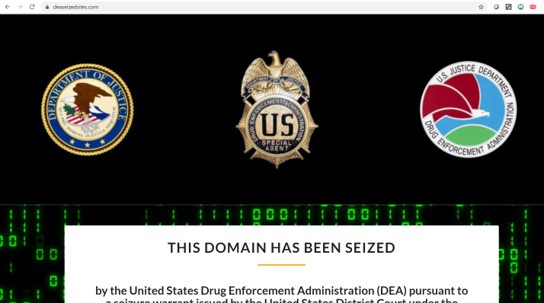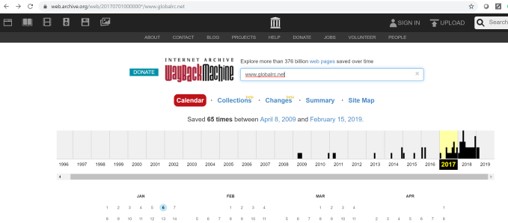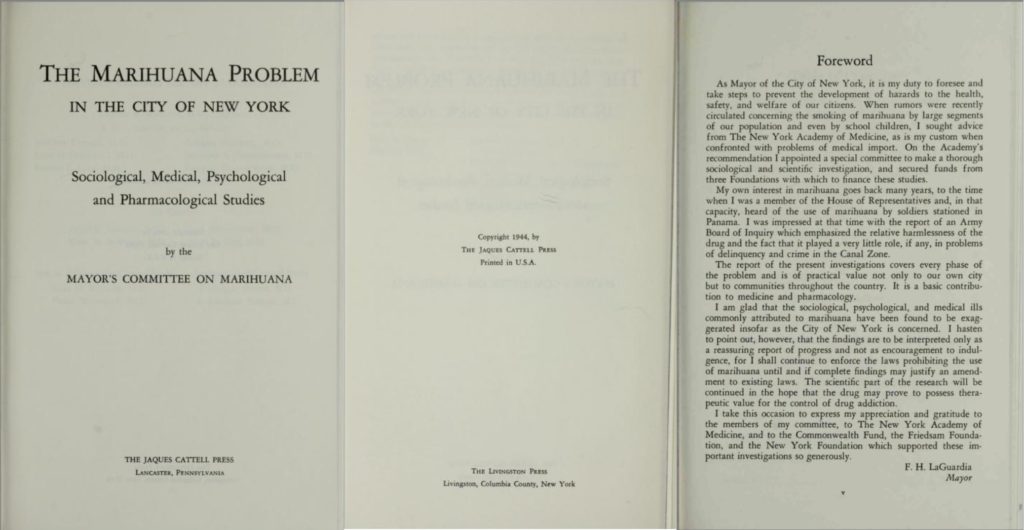One of the greatest investigative tools available today is the Internet Archive, a “non-profit library of millions of free books, movies, software, music, websites, and more” – https://archive.org/. The best tool in this online library is the WayBack Machine. It is described as follows:
The Internet Archive has been archiving the web for 20 years and has preserved billions of webpages from millions of websites. These webpages are often made up of, and link to, many images, videos, style sheets, scripts and other web objects. Over the years, the Archive has saved over 510 billion such time-stamped web objects, which we term web captures.
We define a webpage as a valid web capture that is an HTML document, a plain text document, or a PDF.
A domain on the web is an owned section of the internet namespace, such as google.com or archive.org or bbc.co.uk. A host on the web is identified by a fully qualified domain name or FQDN that specifies its exact location in the tree hierarchy of the Domain Name System. The FQDN consists of the following parts: hostname and domain name. As an example, in case of the host blog.archive.org, its hostname is blog and the host is located within the domain archive.org.
We define a website to be a host that has served webpages and has at least one incoming link from a webpage belonging to a different domain.
As of today, the Internet Archive officially holds 273 billion webpages from over 361 million websites, taking up 15 petabytes of storage.
Here’s an example of how the WayBack Machine can be used. In a federal criminal complaint unsealed on August 15, 2019 in the case of United States v Manish Patel (Eastern District of California, case no 19-MJ-0128), the affidavit supporting the complaint provided that the defendant had business cards that showed he was the CEO of The Sentient Law Group PC in New York City, but the website for that entity – http://www.sentientlawgroup.com – as accessed on August 5, 2019 did not show him as CEO. But by simply typing that URL into the WayBack Machine’s search bar you find every instance of that website that was captured by the WayBack Machine. Viewing the first and last captures (on April 13, 2017 and February 12, 2019) shows the defendant Patel as the CEO, his practice focus areas (including cannabis law, which is ironic given that Patel was charged with multiple counts involving possession with intent to distribute marijuana). This tool is particularly helpful in online child pornography cases, where defendants move and change websites, and was instrumental in a number of post-9/11 cases, where the English language Al Qaeda website changed dramatically after 9/11 … but its historical web pages remained accessible, thanks to the Internet Archive and its WayBack Machine.
OFAC Designation of the Zheng Drug Trafficking Organization – August 21, 2019
Another great example of the power of the WayBack Machine can be found in a series of federal criminal cases that culminated in OFAC designating the criminal defendants as Foreign Narcotics Kingpins. See the Treasury press release at https://home.treasury.gov/news/press-releases/sm756
One of those designated, Fujing Zheng, was indicted in federal court in Ohio in August 2018 (US v Zhang et al, Northern District of Ohio, case 18CR00474). In that 86-page indictment, the Government alleges that the Zhang organization used a website to market its illegal drugs – www.globalrc.net
What has happened to www.globalrc.net?
If you search for that URL today, you get the following:
As it shows, that domain has been seized by the DEA and is no longer accessible. But the WayBack Machine has captured and saved that website 65 times between April 8, 2009 and February 15, 2019:
And simply by selecting any of the 65 dates, you can access the captured website. An example is from January 6, 2017:
You can see the actual website used by the Zheng DTO back in 2017. A powerful investigative tool!
But there is more to be found on the Internet Archive. The twenty or so archived collections are incredible sources. Here is an example of a document from the “Journals” collection:
https://archive.org/details/TheMarihuanaProblemInTheCityOfNewYork-19441973Edition/page/n19
In 1944, Legendary New York Mayor F.H. LaGuardia commissioned a report to look into “The Marihuana Problem in the City of New York.” The forward is interesting. It provides:
“As Mayor of New York City, it is my duty to foresee and take steps to prevent the development of hazards to the health, safety, and welfare of our citizens. When rumors were recently circulated concerning the smoking of marihuana by large segments of our population and even by school children, I sought advice from The New York Academy of Medicine, as is my custom when confronted with problems of medical import.”
“The report of the present investigation covers every phase of the problem and is of practical value not only to our own city but to communities throughout the country. It is a basic contribution to medicine and pharmacology.”
“I am glad that the sociological, psychological, and medical ills commonly attributed to marihuana have been found to be exaggerated insofar as the City of New York is concerned. I hasten to point out, though, that the findings are to be interpreted only as a reassuring report of progress and not as encouragement to indulgence, for I shall continue to enforce the laws prohibiting the use of marihuana until and if complete findings may justify an amendment to existing laws. The scientific part of the research will be continued in the hope that the drug may prove to possess therapeutic value for the control of drug addiction.”
Try out the Internet Archive!




